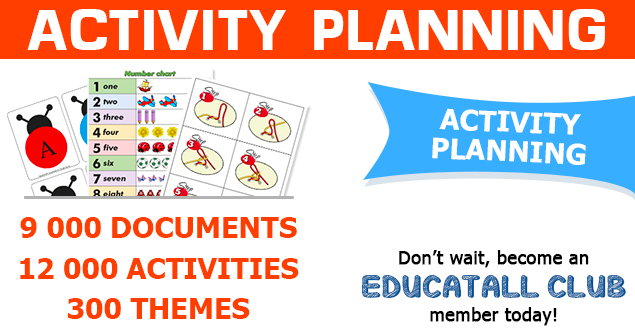
Becoming a Zen early childhood educator
I must admit that I am a big fan of having a mellow attitude. In general, I am a calm person. I do not get stressed out and I don't worry about little details. Some may say being Zen is easier for certain people. I like to think that a Zen feeling is accessible to all. What do you think? Would you like to seize the opportunity to achieve a Zen feeling?
Let's be honest. Our daily routine often involves a commute, work, managing children, and putting them to bed at the end of the day along with tantrums, bumps and bruises, and 1 001 diaper changes. It's a lot to handle. I have met many early childhood educators who are tired and sometimes even at their wits' end. Nonetheless, I am convinced you have one of the most rewarding jobs. For this reason, I feel it's important that early childhood educators avoid stretching their resources and energy beyond their limits so they can look forward to going to work every day.
Of course, some people are much calmer. Certain personality traits make it possible for them to worry less, be less anxious, less stressed out. For others, here are a few means that may help reduce your stress level and enjoy a Zen state of mind.
- Lighten your schedule. Schedules and planning represent an important part of an early childhood educator's job. Offering educational activities that will stimulate children's development is necessary. However, you can simplify your schedule by including only a limited number of planned activities in your daily schedule. Your days are busy enough with regular routines, diaper changes, and baby bottles. Offering too many activities causes unnecessary stress.
- Breathe. Breathing is key. Take deep breaths. Inhale and exhale. Repeat this exercise several times and pay attention to your body. You will instantly be flooded with a sense of well-being. The best part is that this technique is available anytime, anywhere. It represents a quick tool that can help you achieve inner peace. You can also experiment with the children in your group. Taking deep breaths can be beneficial for them too.
- Take breaks. When children are sleeping, busy working on a specific activity or enjoying free play, take a few minutes to sit down and relax. Pay attention to your thoughts and try to calm down. A short five-minute break is all you need to reap important benefits.
- Give children responsibilities. Who said adults must do everything? In fact, children love having little jobs. Evaluate their capacities and give them small daily tasks. This will make your life easier. What's more, children will feel valued because they will see that you trust they can complete certain tasks. It's a win-win!
- Establish priorities. We all have a lot to do. Identify your priorities and determine which tasks can wait. Focus your energy on what is important right now. You can tackle the items that can wait later.
- Include calm activities in your schedule. Children need to be active, but they also need quiet moments to relax and unwind. Introduce calm activities throughout the day at fixed times or whenever you feel they are necessary. Avoid simply animating calm activities. Participating will mean you benefit from them too.
- Yoga. Have you ever enjoyed a yoga session with your group of children? Once again, performing yoga poses with little ones will mean you and your group are Zen. Try to include a brief yoga practice in your daily schedule to teach children another great calming activity.
I think that understanding to which extent children are like little sponges who feel and absorb the energy of the people around them is very important. Children can benefit from a calm, stress-free environment. Providing them with methods and tools that will help them be Zen should be a priority.
Never forget that a Zen attitude begins with a calm, positive spirit. Pay attention to your thoughts. After all, they can have an impact on you and your group. If you are calm, your group will be too.
Maude Dube, Specialized educator

 Home
Home Theme activities
Theme activities
 Babies and toddlers
Babies and toddlers
 Arts and crafts
Arts and crafts
 Science
Science
 Creative recipes
Creative recipes
 Tips and tricks
Tips and tricks
 Special needs
Special needs
 Extra activities
Extra activities
 Educ-TV
Educ-TV
 Newsletter
Newsletter  Online store
Online store Educatall club
Educatall club


